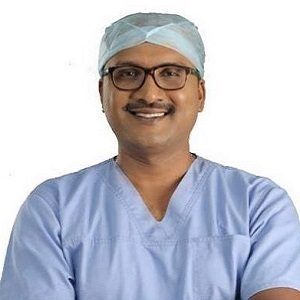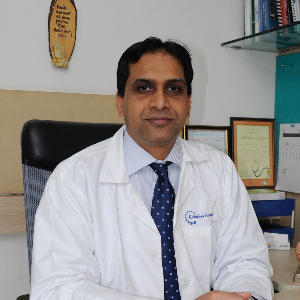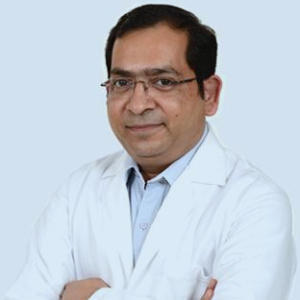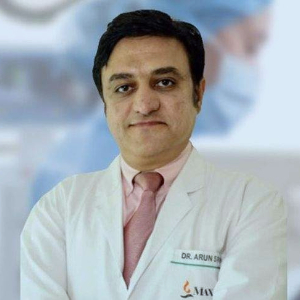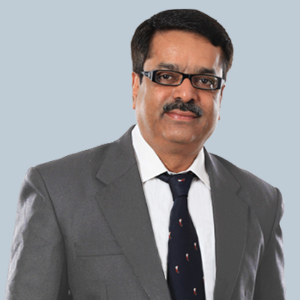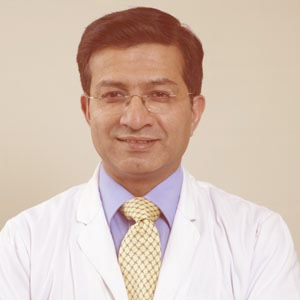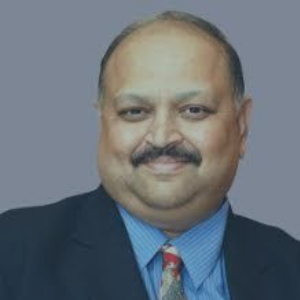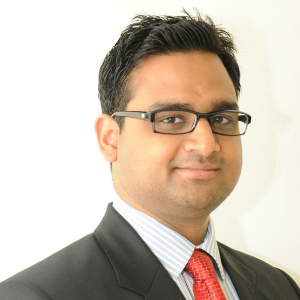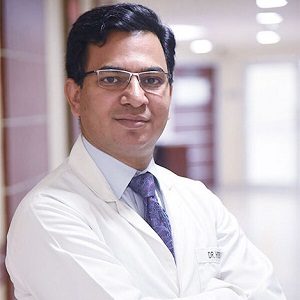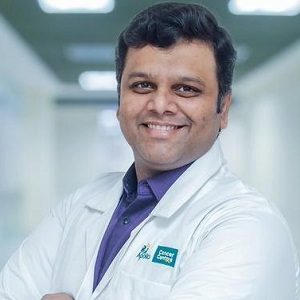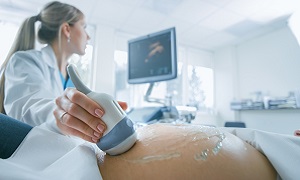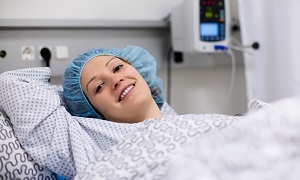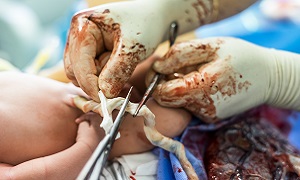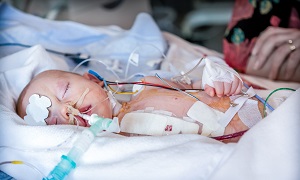Best Doctors in India for Spina Bifida Treatment
- Orthopedic Surgeon, Chennai, India
- Over 21 years’ experience
- Apollo Hospitals Greams Road
Profile Highlights:
- Dr. A Navaladi Shankar is a well-known spine surgeon and orthopedist in Chennai with 21+ years of experience.
- He completed an MBBS from Al-Ameen Medical College, MNAMS from the National Board of Education, and a Diploma from Sri Ramachandra Medical College and Research Institute.
- Dr. Shankar holds expertise in Laminectomy, Lower Back Pain and Neck Pain Treatment, Arthritis Management, and Trauma Surgery.
- Top Neuro Surgeon & Spine Surgeon | Kokilaben Hospital, Mumbai, India
- 26+ Years Experience
- Kokilaben Dhirubhai Ambani Hospital
Profile Highlights:
- Dr. Abhaya Kumar is a leading name in the field of Neurosurgery in India and is currently associated with Kokilaben Dhirubhai Ambani Hospital, Mumbai as the Head and Consultant of Neurosurgery and Minimally Invasive Spine Surgery.
- He is an expert in Minimally Invasive Spine Surgery, Brain surgery, and Stereotactic Radiosurgery. He has performed more than 3500 spine surgeries and 5500 brain surgeries in KDAH alone.
- His primary focus includes Minimally Invasive Spine Surgery (MISS). Till date, he has handled over 2500 Minimal Invasive spine cases in the hospital with an outstanding success record.
- In addition, he has treated over 300 cases of Craniovertebral Junction anomalies and performed surgeries for approximately 3000 brain tumors and over 500 spinal cord tumors. He frequently utilizes advanced technologies like Intraoperative MRI (IMRIS), neuro-navigation, stereotaxy, and neuroendoscopy in his procedures.
- Top Neurosurgeon & Spine Surgeon | BLK Hospital, New Delhi, India
- 29+ Years Experience
- BLK Super Specialty Hospital, New Delhi
Profile Highlights:
- Dr. Anil Kumar Kansal is a highly respected and accomplished neurosurgeon with over 29 years of extensive experience in the field of neurosurgery, spine surgery, and robotic surgery.
- He currently serves as the Principal Director and Head of the Department at Max Healthcare, where he leads the Neurosciences division with a focus on delivering cutting-edge care to patients with complex neurological conditions.
- He earned his MCh in Neuro Surgery from King George’s Medical College, Lucknow University, in 2001, following an MS in General Surgery from the same prestigious institution in 1997.
- Top Neurosurgeon | Max Hospital, Saket, New Delhi | India
- 20+ Years Experience
- Max Super Specialty Hospital, Saket, New Delhi
Profile Highlights:
- Dr. Arun Saroha is a renowned Neurosurgeon with extensive experience in the surgical treatment of all kinds of brain and spine disorders.
- He holds an experience of over 20 years in the field and has performed over 8000 neurosurgeries till date for different types of neuro and spinal diseases.
- Dr. Saroha is an expert in minimally invasive spine surgery, neuro-onco surgery, trauma surgery and is also among the few neurosurgeons with expertise in Pediatric neurosurgery.
- His interest lies in brain and spine disorders like degenerative spine disorder, brain tumors, disc replacements, pediatric neurosurgery surgery for stroke, brain and spine tumor surgery, brain aneurysms, spinal fusion, and decompression surgery.
- Neurosurgeon, Mumbai, India
- Over 25 years’ experience
- Fortis Hiranandani Hospital Vashi Mumbai
Profile Highlights:
- Dr. Ashok Hande is a renowned neurosurgeon in Mumbai who holds the credit for 300 AVMs, 1400 skull base tumor surgeries, 3600 surgeries for cranial and spinal trauma, 1200 lumbar prolapsed intervertebral disc surgeries, 800 cerebral aneurysms, and more than 100 microvascular decompressions.
- He holds an experience encompassing 25+ years and holds the credit for pioneering neurosurgery in Mumbai by bringing in new and advanced neurosurgical procedures for brain and spine surgery.
- Top Neurosurgeon | Max Hospital, Saket, New Delhi, India
- 20+ Years Experience
- Max Super Specialty Hospital, Saket, New Delhi
Profile Highlights:
- Dr. Bipin Walia is one of the most famous neurosurgeons who has performed over 7000 successful neurosurgeries so far.
- Dr. Bipin Walia specializes in image-guided surgery, disc replacement, and endoscopic disc surgery, including endoscopic cranial surgery. His expertise also includes brain tumor surgery and a special focus on minimally invasive surgery for spinal tumors.
- He earned his MBBS and MS (General Surgery) degree from Armed Forces Medical College, Pune, followed by which his, M.Ch(Neurosurgery) from All India Institute of Medical Sciences, New Delhi.
- Dr. Bipin Walia has over 20 years of experience with his outstanding performance earning him quite some rewards and recognition.
- Orthopedic Surgeon & Spine Surgeon, Mumbai, India
- Over 20 years’ experience
- Reliance Hospital Navi Mumbai
Profile Highlights:
- Dr. Gautam Zaveri is one of the best spine surgeons in India today and has performed over 3000 spinal surgeries for the treatment of spinal fractures, trauma, slipped discs, kyphosis, scoliosis, sciatica, spondylolisthesis, and spinal stenosis.
- Dr. Zaveri specializes in Minimally Invasive Spine Surgeries commonly known as MISS and performs most of his procedures using this technique to minimize cuts and speed up the recovery process.
- Orthopedic Surgeon & Spine Surgeon, Gurugram, India
- Over 15 years’ experience
- Fortis Hospital Noida
Profile Highlights:
- Dr. Himanshu Tyagi is a well-known Spine surgeon with a specialization in Minimally Invasive Spine Surgeries (MISS), Knee Replacement, and Orthopedics.
- In order to ensure accurate and successful results, he uses cutting edge methods in knee and spine replacement operations, including minimally invasive treatments and navigation-assisted surgery.
- He holds a super specialization in spine surgery from Sir Ganga Ram Hospital, New Delhi, and is an expert in performing endoscopic spinal procedures and complex spinal surgeries.
- He has over 15 years of experience in the field and is trained to perform all kinds of reconstructive and corrective spinal surgeries.
- Orthopedic Surgeon and Spine Surgeon, Gurugram, India
- Over 15 years’ experience
- Artemis Hospital, Gurgaon
Profile Highlights:
- Dr. Hitesh Garg is a leading orthopedic and spine surgeon, currently serving as the Head of Ortho-Spine Surgery at Artemis Hospitals in Gurugram, India.
- With over 15 years of extensive experience, Dr. Garg has garnered a reputation for excellence in the field of spine surgery, having performed more than 5,000 spine surgeries, including over 2,500 spinal fusions, 1,000 deformity correction procedures, 300 artificial disc replacements, and 500 complex surgeries addressing spinal tumors, congenital defects, and spino-pelvic fixations.
- Dr. Garg’s medical journey began at the prestigious All India Institute of Medical Sciences (AIIMS), New Delhi, where he earned his MBBS. He further honed his expertise with an MS in Orthopedics from KEM Hospital and Seth G.S. Medical College, Mumbai.
- Orthopedic Surgeon and Spine Surgeon, Chennai, India
- Over 12 years’ experience
- Apollo Cancer Centre
Profile Highlights:
- Dr. Madhu Kiran Yarlagadda is an orthopedics – consultant specializing in Joint and spine surgery and works at the Apollo hospitals of Chennai.
- Dr. Madhu Kiran Yarlagadda’s team carried out Robotic Spine Surgery for the first time in South-East Asia and performed Endoscopic Transforaminal Spine Surgery in Chennai.
- He treats spine diseases and has the facilities and expertise to perform robotic spine surgery. Along with that, he treats patients with joint and other orthopedic issues.
Best Hospitals in India for Spina Bifida Treatment
- City: Gurugram, India
Hospital Highlights:
- One of India’s best and largest multi-specialty hospitals, Medanta was built with the aim to bring India to the highest standards of medical care. The hospital has been providing the best medical services to its patients, since its inception, with care, commitment, and compassion.
- Equipped with 1250 beds, the hospital was founded by Dr. Naresh Trehan in the year 2009 with an aim to provide the best medical care at affordable costs. The hospital is spread across 43 acres and includes 45 operation theatres and 350 beds dedicated solely to ICU. The hospital includes over 800 doctors, and more than 22 specialty departments and has a dedicated floor for individual specialty in order to offer the best services under one roof.
- The hospital is considered one of the premier institutes in India for Cardiac Care and includes staffs and members of high caliber. The hospital has 6 distinct centers of excellence.
- City: Gurugram, India
Hospital Highlights:
- Artemis Hospital, established in 2007 in Gurugram, India, is a leading multi-specialty institution known for its excellence in patient care and advanced medical technology, offering comprehensive services across specialties like Cardiology, Oncology, Neurology, Orthopedics etc.
- Renowned for its patient-focused care, Artemis Hospital combines state-of-the-art infrastructure with a team of internationally trained doctors and surgeons, ensuring the highest standards of medical treatment.
- Accredited by JCI and NABH, Artemis Hospital meets global healthcare quality and safety standards, reflecting its commitment to providing compassionate, personalized care.
- The hospital is recognized for utilizing cutting-edge diagnostic and ther*peutic techniques, ensuring patients receive accurate diagnoses and effective treatments tailored to their needs.
- City: Chennai, India
Hospital Highlights:
- The Apollo Proton Cancer Centre in Chennai is the most sought-after private cancer hospital in India. It is an integrated facility that provides cutting-edge, all inclusive cancer treatment to patients all over the globe.
- The hospital is a part of the renowned Apollo Group which has a large network of over 74 hospitals in India and across the globe. Out of the 74 hospitals, 21 of them are cancer centres. However, Apollo Proton Cancer Centre is the only cancer hospital to have JCI accreditation.
- The Centre, which was established on the principles of excellence and expertise, unites a formidable medical staff led by some of the most illustrious figures in cancer treatment.
- The hospital follows the global ASTRO Model Policy. It is the same global policy which is followed by countries like USA, UK, and Europe.
- Apollo Proton Cancer Centre is among the very few hospitals in India to receive patients from First World countries such as USA, Canada, New Zealand, Australia, Singapore, Thailand, etc.
- Apart from that, it is also the first hospital in Chennai to receive patients from several countries like Uzbekistan, Kazakhstan, Turkmenistan, Georgia, Armenia, Azerbaijan, SAARC countries (Bangladesh, Nepal, Sri Lanka, Maldives, Bhutan, Afghanistan, and Pakistan), South Africa, Turkey, Egypt, etc.
- In fact, there is a dedicated team at the Apollo Proton Cancer Centre that serves only international patients. Thus, on a monthly basis, the Centre receives patients from across 32 countries.
- Moreover, there are certain treatments in Apollo Proton Cancer Centre that are not available in any other centre. APCC addresses all types of possible cancers that are usually not covered by any other centre.
- City: New Delhi, India
Hospital Highlights:
- Over the last 33 years, the Fortis Escorts Heart Institute has set new standards in cardiac treatment with groundbreaking research. It is now known around the world as a centre of expertise for Cardiac Bypass Surgery, Interventional Cardiology, Non-invasive Cardiology, Paediatric Cardiology, and Paediatric Cardiac Surgery.
- The hospital has cutting-edge laboratories that perform a wide range of diagnostic tests in Nuclear Medicine, Radiology, Biochemistry, Haematology, Transfusion Medicine, and Microbiology.
- Fortis Escorts Heart Institute boasts a diverse group of bright and experienced doctors who are backed up by a team of highly qualified, experienced, and devoted support professionals as well as cutting-edge equipment such as the recently installed Dual CT Scan.
- Approximately 200 cardiac doctors and 1600 personnel currently collaborate to manage over 14,500 admissions and 7,200 emergency situations each year. The hospital now has a 310-bed infrastructure, as well as five cath labs and a slew of other world-class amenities.
- City: Gurugram, India
Hospital Highlights:
- Fortis Memorial Research Institute (FMRI) is a premier multi-super-specialty, quaternary care hospital, known for its exceptional international faculty, top-tier clinicians, super-sub-specialists, and specialized nurses, all supported by cutting-edge technology.
- It is the flaship hospital of Fortis Healthcare Limited, part of IHH Healthcare Berhad, a leading integrated healthcare services provider in India. As one of the country’s largest healthcare organizations, Fortis operates 28 healthcare facilities with over 4,500 operational beds (including O&M facilities) and more than 400 diagnostic centers (including joint ventures).
- Recognized as one of the top hospitals in India, FMRI serves as a leading referral center and aspires to be the ‘Mecca of Healthcare’ for India and beyond. Its 11-acre campus is a testament to its commitment to providing world-class healthcare.
- Accredited by JCI and NABH, FMRI is dedicated to maintaining the highest standards of healthcare quality and safety, ensuring that every patient receives the best possible care. The hospital’s reputation is further enhanced by its state-of-the-art facilities and innovative medical practices.
- City: New Delhi, India
Hospital Highlights:
- The Indian Spinal Injuries Center (ISIC), provides state-of-the-art facilities for the management of all types of spinal ailments.
- Staffed with internationally trained, acclaimed, and dedicated spine surgeons, the hospital provides cutting-edge medical & surgical technology. The hospital provides comprehensive management of spinal injury, back pain, spinal deformities, tumors, osteoporosis, etc.
- The hospital performs motion-preserving spine surgeries including disc replacement and dynamic fixation, and minimally invasive spine surgeries such as endoscopic disc excision.
- The orthopedic service of the hospital covers all orthopedic ailments including trauma, joint diseases & replacements, oncology, pediatric orthopedics & upper limb ailment.
- City: Faridabad
Hospital Highlights:
In the sprawling city of Faridabad, where healthcare needs are diverse and ever-evolving, one institution has consistently stood out as a beacon of excellence in the field of medicine—Marengo Asia Hospital. Established with a vision to provide world-class healthcare services to the community it serves, Marengo Asia Hospital has emerged as a trusted name synonymous with quality, compassion, and innovation in healthcare.
- City: New Delhi, India
Hospital Highlights:
- Indraprastha Apollo Hospital is a 700-bedded multispecialty hospital in the heart of the capital of India. It is a part of Apollo Hospital group, one of India’s most reputed healthcare chains. Indraprastha Apollo Hospital has been accredited by Joint Commission International, making it the first internationally accredited hospital in the country in 2005.
- There are 52 specialties in the hospital with one of the best cardiology centers in the country. The hospital is also equipped with State of the art infrastructure facilities with the largest Sleep Lab in Asia and the largest number of ICU bed facilities in India.
- The latest and highly advanced technologies that are installed in the hospital include Da Vinci Robotic Surgery System, PET-MR, PET-CT, Cobalt-based HDR, Brain Lab Navigation System, Tilting MRI, Portable CT scanner, 3 Tesla MRI, 128 Slice CT scanner, DSA Lab, Endosonography, Hyperbaric Chamber and Fibro scan.
- City: New Delhi, India
Hospital Highlights:
- One of the well-regarded providers in India committed to the highest standards of clinical excellence and patient care, Max Super Specialty Hospital is a part of Max Healthcare, which is the second-largest healthcare chain in India. Regarded as one of the most well-regarded healthcare providers in the country, Max Super Specialty Hospital is committed to the highest standards of clinical excellence as well as patient care. The hospital is also equipped with the latest technology as well as cutting-edge research. The hospital is known to deliver and ensure the highest level of patient care.
- The hospital has more than 500 beds and offers treatment for over 35 specialties. The hospital also holds the credit of having installed the first Brain Suite in Asia. This is a highly advanced Neurosurgical machine that allows MRI to be taken while surgery is ongoing.
- Other advanced and latest technologies are also installed in the hospital such as the 1.5 Tesla MRI machine, 64 Slice CT Angiography, 4D ECHO, LINAC, and 3.5T MRI machine.
- City: Kolkata, India
Hospital Highlights:
- Founded in 2017, the HCG EKO Cancer Centre is a committed, all-inclusive cancer care facility in Kolkata.
- The hospital was collaboratively established by India’s leading cancer care provider HCG (HealthCare Global Enterprises Ltd.), and EKO Diagnostic Pvt. Ltd., a top diagnostic and imaging chain in Eastern India.
- With 88 beds, the hospital provides a full spectrum of services including diagnosis, prevention, screening, second opinions, treatment, rehabilitation, follow-up, and palliative care.
- Additionally, the hospital contains a day-care chemotherapy ward, Neutropenic ward, medical ICU, pharmacy, blood bank, and an IPD wing.
- At HCG EKO Cancer Centre Kolkata, a large team of cancer experts with experience in medical oncology, surgical oncology, radiation oncology, hemato oncology, BMT, and nuclear medicine collaborate to offer a variety of treatment options under one roof.
- Furthermore, the hospital is also known for employing the most advanced radiation technology such as, the Radixact, a next-generation TomoTherapy equipment that provides greater radiation delivery precision.
Spina Bifida
Spina Bifida also known as neural tube defect, is a birth defect that occurs when your spine and spinal cord don’t form correctly. The neural tube is the structure in a developing embryo which eventually becomes the brain of the child, spinal cord as well as the tissues enclosing them.
In normal cases, the neural tube forms early during pregnancy and it closes by the 28th day after conception. In babies with spina bifida, one portion of the neural tube fails to close or develop properly, which results in defects in the spinal cord and the spinal bones.
Spine Bifida can be mild as well as severe, as it depends on the type of defect, location, size as well as complications. When required, early treatment for spina bifida will involve surgery, but the problem isn’t always resolved by such treatment.
Types of Spina Bifida
There are three main types of spina bifida, which include myelomeningocele, meningocele and spina bifida occulta.
1.Myelomeningocele- The most common and serious type of spina bifida which involves a sack outside the opening in the back of the baby somewhere in the spine, which contains parts of the spinal cord as well as nerves which will get damaged. People who have myelomeningocele can have physical disabilities which may be moderate to severe and some of such disabilities can include:
- Incontinence
- Difficulty in going to the washroom
- Inability in moving or feeling one’s legs or feet
2.Meningocele- Meningocele is another type of spina bifida which involves a sack of fluid outside an opening in the back of the baby. However, the sack doesn’t contain any part of the spinal cord, as there isn’t much nerve damage, this kind of spina bifida only leads to minor problems.
3.Spina Bifida Occulta- This is another mild type of spina bifida which also goes by the term ‘hidden spina bifida’, as it doesn’t cause any disabilities and might go unnoticed until later in life. Usually, there is no opening the in back of the baby but only a gap in the spine. In this type, there is also damage to the spinal cord or the nerves.
Symptoms of Spina Bifida
Each type of spina bifida shows different symptoms and they can vary from person to person as well.
Symptoms of myelomeningocele spina bifida can include:
- Over some of the vertebrae the spinal canal is open, often in the middle or lower part of the back
- Weak or paralyzed muscles in the leg
- Membranes and spinal cord pushed outside the back in a skin-covered sack
- Deformed feet
- Uneven hips
- Seizures
- Scoliosis
- Issues with the bowel and bladder
Symptoms of meningocele can include the following:
- Sack that is visible at birth
- Small opening at the back
- Membranes which are pushing out through the opening in the vertebrae into the sack
- Normal spinal cord development
Spina bifida occulta symptoms include- - No visible opening outside
- A gap in between vertebrae
- No fluid-filled sack outside the body
- Small cluster of hair on the back
- A small area of extra fat on the back
- Small birthmark such as a dimple on the back
Causes of Spina Bifida
All the exact causes of this ailment are still not understood properly. However, it is known that combination of genetics and environmental factors are involved. A child who is born with spina bifida might not have any relatives with this condition but genetics does play a factor. It is also believed that lack of folic acid (vitamin B-9) can play a role in this ailment. Other factors that are said to play a role include obesity, some kind of medications and uncontrolled diabetes in the mother.
Diagnosis of Spina Bifida
Pregnant women will be offered prenatal screening tests for checking for spina bifida and other birth defects. These tests aren’t perfect. Some mothers had positive blood tests have babies without spina bifida. Even if the result is negative, there is a slight chance that the spina bifida is present, so consider talking to your doctor regarding prenatal testing, its risks and you now need to handle the results.
Though spina bifida can be screened using maternal blood tests, typically ultrasound is used for diagnosis in most cases.
Maternal Serum Alpha-Fetoprotein test
For Maternal Serum Alpha-Fetoprotein test, a sample of the mother’s blood is drawn to be tested for alpha-fetoprotein, a protein that is produced by the baby. It’s quite normal for a little amount of AFP to cross the placenta and enter the mother’s bloodstream, but abnormally high levels of AFP suggests that the baby has a neural tube defect, which can be spina bifida, even though high levels of AFP don’t occur always in spina bifida.
Test to Confirm high AFP levels
Varying levels of AFP can also be caused by other factors, which include a miscalculation in the fetal age of multiple babies. Therefore, your doctor might order another blood test for confirmation, If the results are still high, you will need even further evaluation, which will include an ultrasound exam.
Other blood tests
Ultrasound
Fetal ultrasound is the most accurate method for diagnosing spina bifida in the baby before delivery. Ultrasound may be performed during the first trimester and second trimester. Spina bifida can be diagnosed accurately in the second-trimester ultrasound scan. This exam, therefore, becomes quite important to identify and rule out congenital anomalies like spina bifida.
An advanced ultrasound can also detect signs of spina bifida, which includes an open spine or particular features in the brain of the baby, which indicate spina bifida. An expert can easily assess the severity of the ailment using ultrasound.
Amniocentesis
If the prenatal ultrasound confirms the diagnosis of spina bifida, your doctor might request amniocentesis. During this process, your doctor removes a sample of fluid from the amniotic sac surrounding the baby using a needle. The purpose of this examination is to rule out genetic diseases, even though spina bifida is rarely associated with genetic diseases.
Treatment options for Spina Bifida
The treatment for spina bifida may vary as it always depends on the severity of the condition. While spina bifida occulta won’t require any treatment, other types do.
Surgery before birth
Nerve function in babies who have spina bifida can get worse after birth, if spina bifida isn’t treated. Prenatal surgery to treat spina bifida takes place before the 26th week of pregnancy. In this procedure, surgeons expose the uterus in the pregnant mother surgically open the uterus and repair the baby’s spinal cord. In some patients, this procedure can be performed even less invasively with a fetoscope through ports in the uterus.
According to research, children with spina bifida who goes through fetal surgery have reduced disability and are less likely to require crutches or any such walking devices. Fetal surgery can reduce the risk of hydrocephalus as well. Consult with your doctor whether this procedure is appropriate for you. Talk regarding the potential benefits and risks such as possible premature delivery as well as other such complications.
It is also quite important to have a comprehensive evaluation to determine whether fetal surgery is feasible. This specialized surgery should only be done at a proper health-care facility that has experienced doctors in fetal surgery. A multispeciality team approach and neonatal intensive care are also important. The team typically includes a fetal surgeon, a pediatric neurosurgeon, a maternal-fetal medicine specialist, a fetal cardiologist as well as a neonatologist.
Cesarean birth
Surgery after birth
Surgery is required for babies with myelomeningocele, and the earlier it is performed, the earlier the risk of infections will be minimized. It will also help in protecting the spinal cord from being exposed to further trauma.
During this procedure, the neurosurgeon will place the spinal cord along with the exposed tissue inside the baby’s body, after which he will cover them with muscle and skin. At the same time, the neurosurgeon might place a shunt in the baby’s brain for controlling hydrocephalus.
Treatment for complications
For babies having myelomeningocele, there has been already irreparable nerve damage and usually a multispeciality team of surgeons, physicians and therapists might be required. Babies having this ailment might need even more surgery to treat a variety of complications. Some of these complications might include weak legs, bladder and bowel problems or hydrocephalus, which usually begins soon after birth.
Depending on the severity of spina bifida and the complications, the treatment options can include:
- Walking and mobility aid- Some babies can start exercises to prepare their legs for walking with the aid of braces of crutches as they get older. Some children might need walkers or wheelchairs. Mobility aids combined with regular physical therapy can help a child in becoming independent. Even children who require wheelchairs can learn to function quite well and become self-sufficient.
- Bowel and bladder management- Routine evaluation of bowel and bladder evaluations as well as management plans can help in the reduction of the risk of organ damage and illness. Evaluations can include X-rays, kidney scans, blood tests, ultrasounds and bladder function studies. These evaluations will have to be done frequently in the first few years of life but it can become lesser, as the child continues to grow.
- Surgery for hydrocephalus- Most babies who have myelomeningocele, will require a surgically placed tube which can allow fluid in the brain to drain into the abdomen. This tube might be placed just after the baby is born, during the surgery to close the sac located on the lower back or later as the fluid accumulates. A less invasive option is also available which is called endoscopic third ventriculostomy. However, candidates are chosen very carefully for this and they need to meet certain criteria. During this procedure, the surgeon will use a small video camera to see inside the brain. He makes a hole in the bottom of between the ventricles so cerebrospinal fluid may flow out of the brain.
- Treatment and Management of other complications- Special equipment which includes bath chairs, commode chairs as well as standing frames might help with daily activities. Whatever the issue, orthopedic complications or tethered spinal cord, most of them can be treated or managed to help improve the child’s quality of life.
Prevention of Spina Bifida
Taking folic acid in supplement form at least one month before one’s conception and continuing through the first trimester of the pregnancy can greatly reduce the risk of spina bifida and other neural tube defects. Having plenty of folic acid in the system by the early weeks of pregnancy is important if you want to prevent spina bifida. Since many women don’t realize that they are pregnant till this time, it is recommended by experts that women who are of childbearing age, should take at least a daily supplement of 400 micrograms of folic acid. Food such as rice, pasta, enriched bread and some breakfast cereals are rich in folic acid.
Women who are planning or expecting pregnancy should also remember to consume at least 400 to 800 mcg of folic acid per day. The human body doesn’t absorb folate as easily as it can absorb synthetic folic acid and therefore it is important that you take vitamin supplements as well. It is also quite possible that folic acid will help to reduce the risk of other birth defects, including cleft lip, cleft palate as well as some congenital heart defects.
It is quite a good idea to eat a healthy diet, including foods that are rich in folate or enriched with folic acid. It is seen to be present naturally in several foods, such as egg yolks, milk, beans, peas, citrus fruits, juices, avocados, dark green vegetables, etc.

